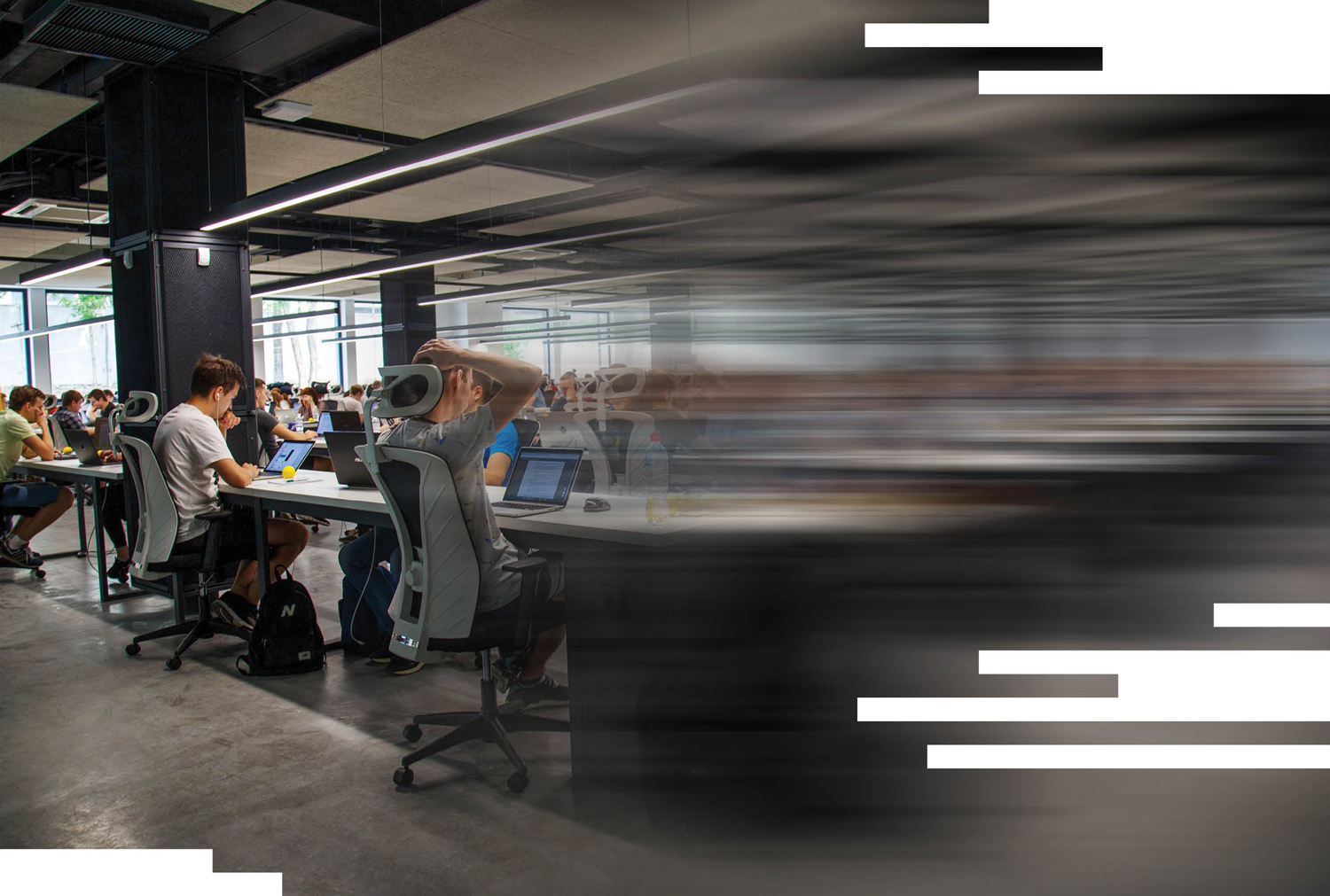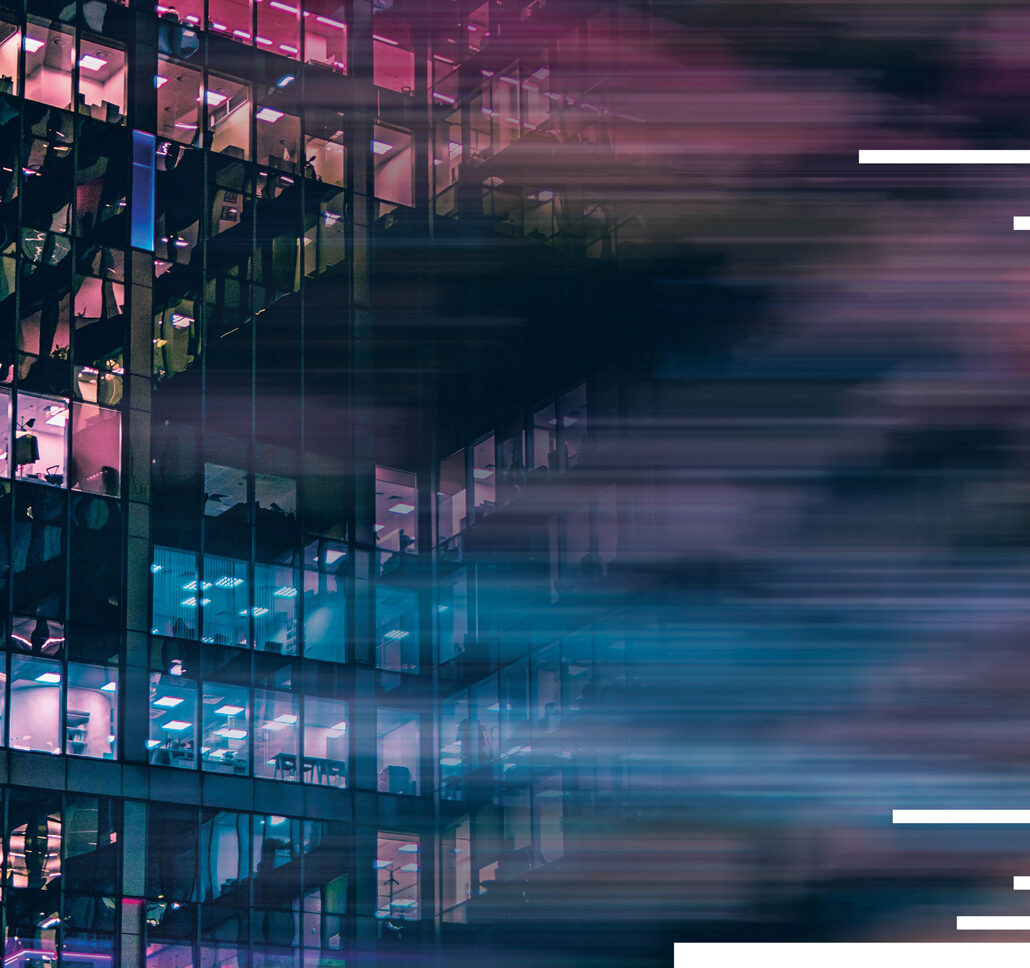The question is on everyone’s minds these days: will AI help or hinder the future of work? Will it enhance human capability, and even create new jobs? Or will it replace human labour, leaving people in a world of ever-shrinking job prospects?
It’s impossible to have a sense of what anything beyond the near future holds, because generative AI is improving exponentially each day and learning things people thought previously impossible in remarkable time. The one certain thing is AI is a paradigm-shifting technology that will dramatically transform the ways we work and the types of jobs that exist.
We can already see these shifts starting to take shape, with researchers across Toronto Metropolitan University (TMU) examining the impacts of this tech wave. TMU researchers are working with AI in many ways, investigating how it can be used to solve big challenges like biomedical problems, cancer and neurodegenerative diagnoses, climate change and many others. Faculty members are also integrating it into their curriculum, and preparing their students for an AI-saturated workforce. But they’re divided on whether it’ll have a net positive or negative impact on the future of work.
AI regulation: balancing innovation and responsibility
For most of us, it’s easy to call to mind the positive effect technology has had on our lives—the printing press, the combustible engine and the internet have all ushered in greater innovation.
Less-talked about is what experts call ‘revenge effects’: the unintended consequences of these advancements—job loss, conflict and the proliferation of ever-deadlier weapons. Now, with AI on the brink of human-level intelligence, some people, including those closest to the technology, are calling for a pause on AI development to allow policy and protections to catch up.
“The impacts and consequences of AI will be greater than earlier rounds of technological innovation, transforming a wide range of careers,” says labour studies researcher Myer Siemiatycki, professor emeritus in the Department of Politics and Public Administration at TMU. “This is so dramatic because it’s not just affecting physical labour, but also the application of mind to work. When Stephen Hawking starts warning that AI could be the end of humanity, it’s incumbent on us to listen up and take stock of what’s going on.”
Tricia Williams, director of research at the Future Skills Centre (FSC), agrees these calls should be heeded. “There have been some prominent voices in AI raising alarms, and we have to listen to them. This is a place for government policy to step in and think not just of private profits, but public good,” she says. “We have to be thinking about policy frameworks that protect the interests of the most marginalized and vulnerable who are at risk of being excluded in an AI-driven workforce.”
Just how that might happen is complex, though, because technology is transnational. “There’s nothing wrong with saying, ‘yes, there is reason for concern here.’ Governments should listen and consider reasonable regulations with the right people involved,” says Chris MacDonald, professor at the Ted Rogers School of Management. “However, regulating it is relatively hard because AI research can happen in a huge number of labs and even private homes.”
MacDonald is even more skeptical about the possibility of AI regulation in the workplace. “Workplaces are too variable. It wouldn’t have been productive to tell businesses not to make cars or mechanical looms in the past because they would put drivers and weavers out of work. Instead, we need to allow innovation and put suitable protections in place through labour law,” he says.
"The impacts and consequences of AI will be greater than earlier rounds of technological innovation, transforming a wide range of careers." —Myer Siemiatycki
Williams says it’s too early to know the real impacts of AI, but thinks the implications are neither euphoric nor dysphoric, and more likely somewhere in the middle. “I think AI is at the forefront of some of the most unknown elements of how technology might change the future of work in the coming 20 to 30 years,” she says. “When the internet first came on the scene, we couldn’t conceive of the ways in which it would lead to new occupations like social media influencers or content creators.”
As these shifts start to occur, Siemiatycki says governments and civil society will have to see that workers’ rights are protected. “The technological euphoria is understandable. It’s hard not to be wowed by the potential scope and upside of AI’s applications,” he says. “But we have to be realistic about what is driving this innovation and its current and future applications—the impact and who it benefits or harms is what matters. We need to think about maximizing the benefits and minimizing the harm.”

Will offices as we know them disappear? Photo by: Mike Kononov/Unsplash






